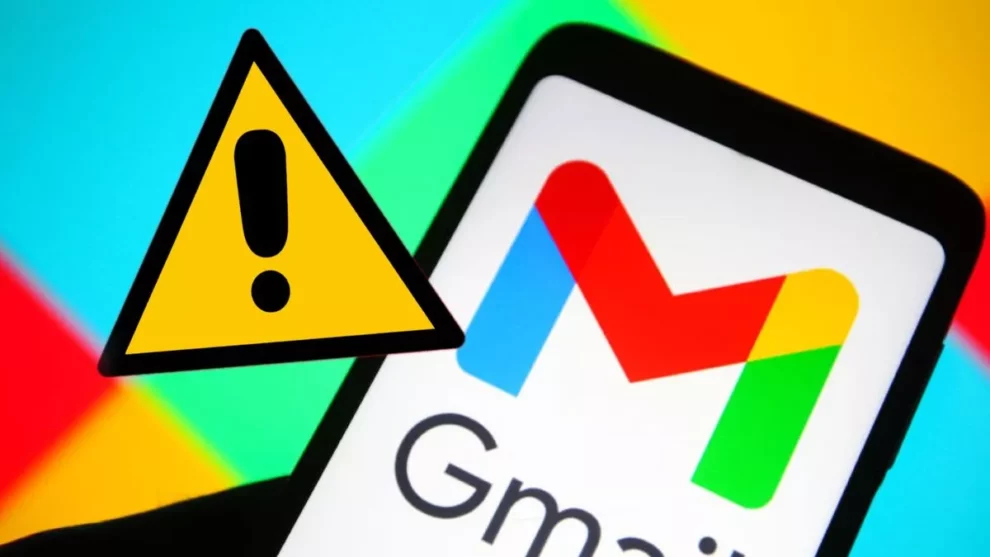A major Gmail account purge is underway as Google implements its stricter inactive account policy, potentially affecting millions of users worldwide. The tech giant has begun sending deletion warnings to account holders, signaling a significant shift in how it manages dormant accounts across its ecosystem of services.
Google’s recent policy update, which took effect December 1, 2023, targets accounts that have remained unused for two years or more. This sweeping change affects not just Gmail but extends across Google’s entire service platform, including Google Photos and Google Docs, putting users at risk of losing valuable data and personal communications stored in these dormant accounts.
According to Google’s official figures, Gmail serves more than 1.8 billion users globally, making it the world’s most popular free email platform. The scale of this cleanup operation could therefore have far-reaching implications for users who maintain multiple accounts for various purposes, such as dedicated subscription management, specific personas, or data storage.
Security concerns drive this aggressive stance toward inactive accounts. Google’s internal analysis reveals that dormant accounts are significantly more vulnerable to security breaches than active ones, with abandoned accounts being at least ten times less likely to have two-factor authentication enabled. These accounts often rely on outdated security measures, including weak or reused passwords, making them potential targets for cybercriminals.
The deletion process isn’t immediate, giving users time to act. Google has implemented a warning system, sending notification emails to affected accounts with specific deletion dates extending into 2025. However, security experts advise against waiting until the last minute to address these warnings, as delayed action could result in permanent loss of access to important data and communications.
For users concerned about protecting their accounts, the solution is straightforward but requires proactive engagement. Any form of account activity resets the two-year inactivity timer. This can include simple actions such as sending an email, watching a YouTube video, conducting a Google search, or accessing Google Drive while logged into the account. However, experts recommend checking accounts at least every six months rather than waiting for the full two-year period to ensure continued access and security.
Users who have lost access to their account credentials aren’t completely out of options. Google’s account recovery process offers a pathway to regain access through verification methods such as recovery emails or phone numbers. This process typically involves receiving verification codes through email or SMS, followed by a password reset procedure if necessary.
The impact of this policy extends beyond personal convenience. Business users who maintain multiple accounts for different projects or purposes need to be particularly vigilant. The loss of access to these accounts could mean losing important business communications, documents, and data stored across Google’s services. This situation underscores the importance of regular account maintenance and proper data backup procedures.
Google’s approach to this security initiative reflects a broader trend in the tech industry toward more proactive security measures, even at the cost of some user convenience. The company’s decision to prioritize security over maintaining inactive accounts signals a significant shift in how major tech platforms approach user account management and digital security.
For organizations and individuals managing multiple Google accounts, this policy necessitates a more structured approach to account management. Regular audits of account usage, consolidation of unnecessary accounts, and implementation of proper security measures like two-factor authentication become increasingly important.
The timing of this cleanup operation coincides with growing concerns about cybersecurity and digital identity protection. By removing inactive accounts, Google aims to reduce the attack surface available to potential hackers while ensuring that active users maintain better security practices.
As the 2025 deletion dates approach, the urgency for users to review their Google account portfolio increases. The permanent nature of these deletions means that once an account is removed, there’s no way to recover the lost data. This finality adds weight to Google’s warnings and underscores the importance of taking prompt action to preserve access to valuable digital assets.
The initiative serves as a reminder of the evolving nature of digital security and the importance of active account management in maintaining secure online presence. As users increasingly rely on digital platforms for storing important information and communications, regular engagement with these services becomes not just a matter of convenience but a necessary security practice.
















Add Comment